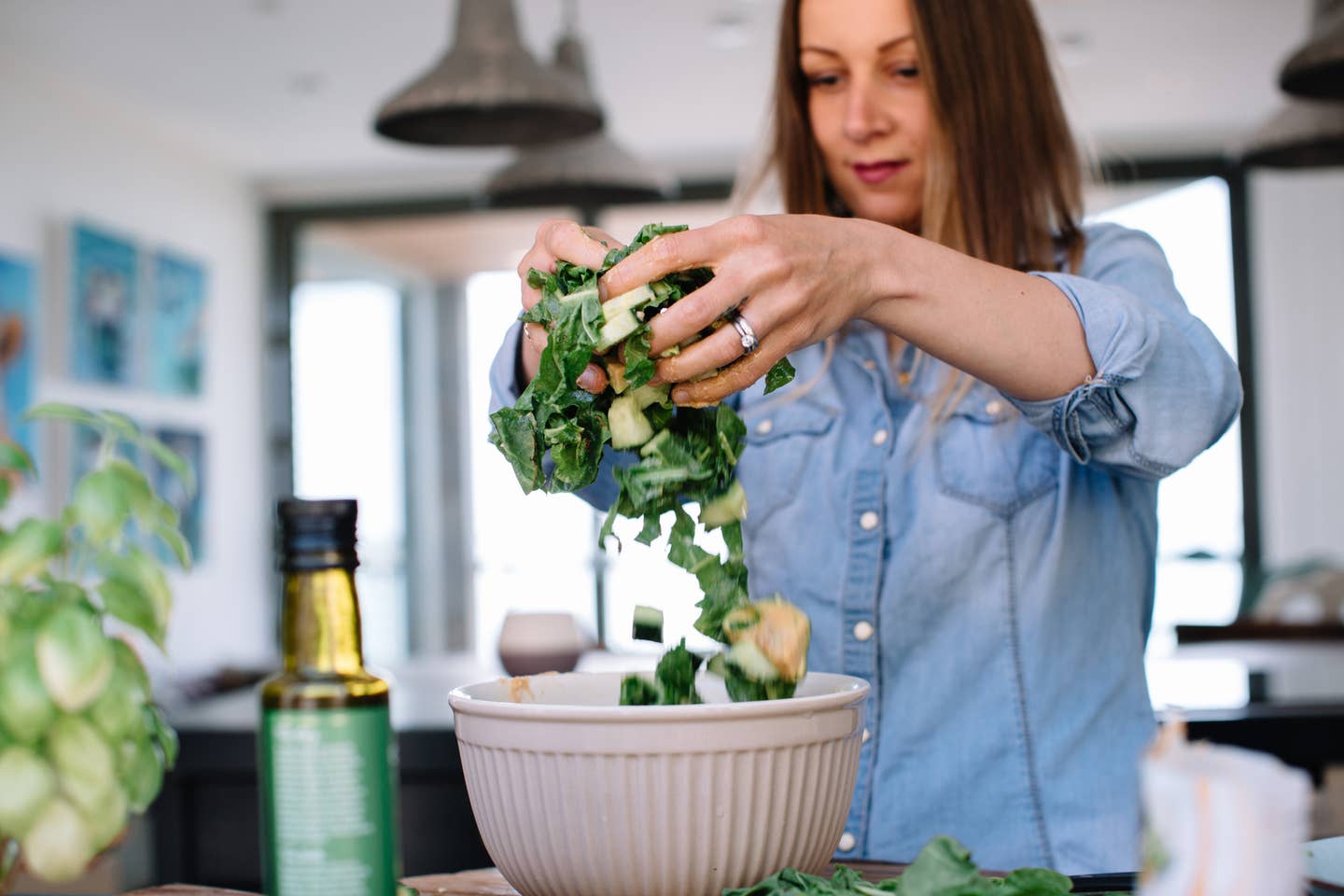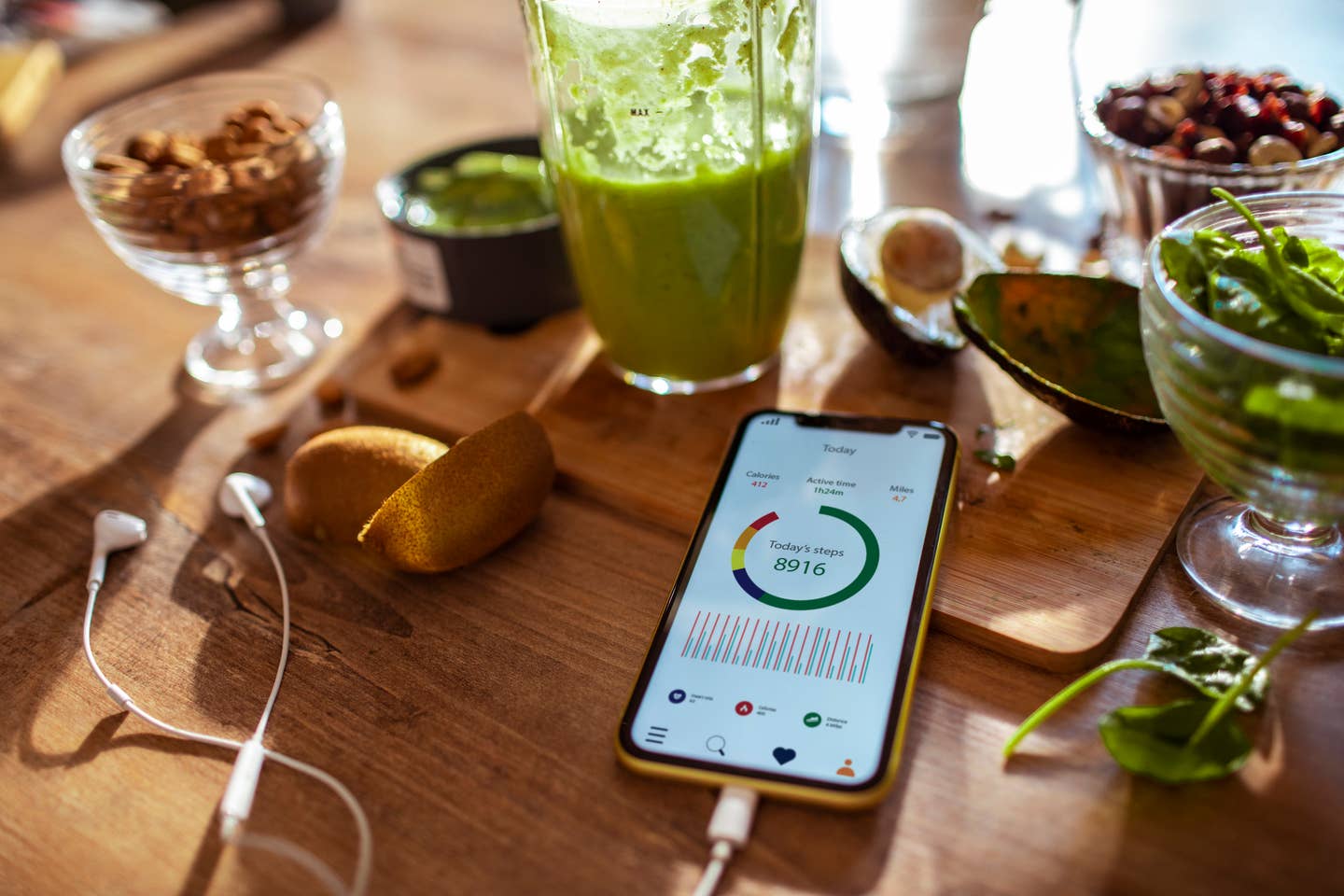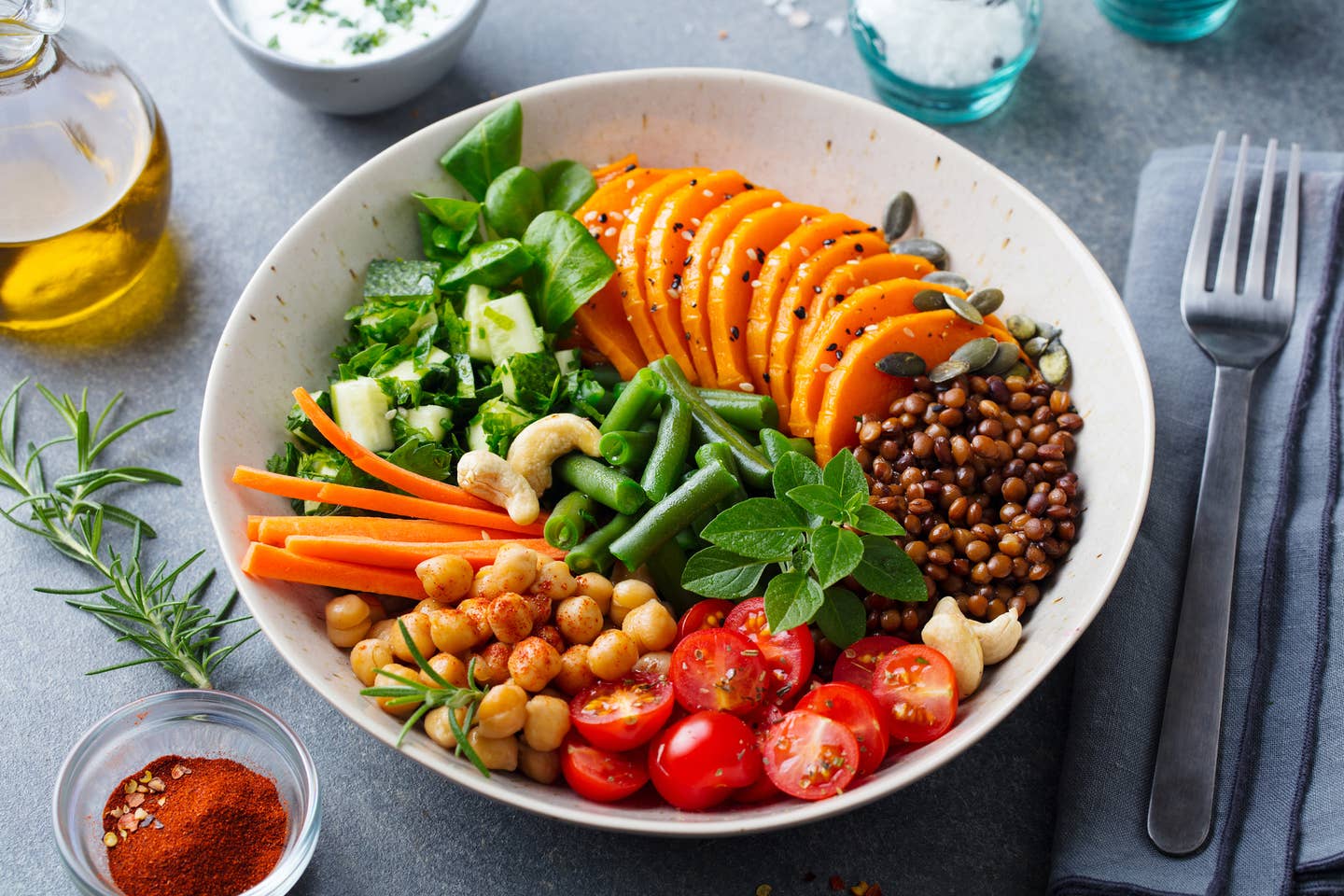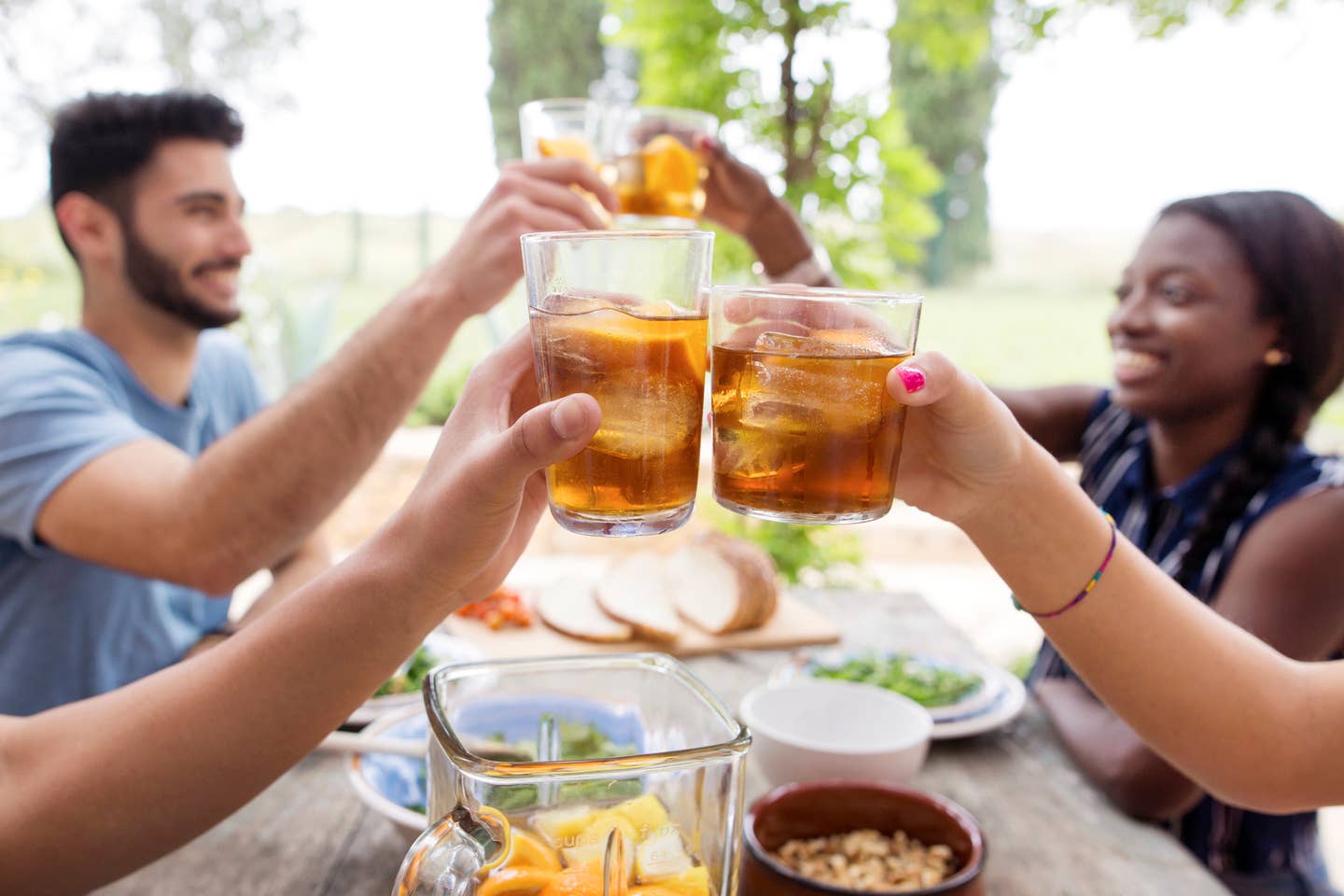
What to Do After Overeating and Drinking, From an RD
If your holiday experience was anything like mine, you were around lots of family and lots of food. Not to mention the beer, wine, and pie, ice cream, cookies, and more cocktails and snacks over football.
In these moments, it can be easy to find ourselves overeating and overdrinking. There’s nothing to be ashamed of, and you shouldn’t restrict what you eat on the days following. Here are some tips I share as a dietitian after a holiday full of eating and drinking.
How to Get Healthy After Thanksgiving
Take a Walk
You’re feeling insanely full and all you want to do is lay down, but taking a walk is much more beneficial. A randomized controlled trial found that doing some sort of physical activity around 30 minutes after eating can help blood glucose response. It doesn’t have to be anything crazy either. Even a 10-minute, low-intensity walk or activity can help get post-meal blood glucose balanced.
Stay Hydrated
If you had one too many alcoholic beverages, make sure to follow that up with plenty of water. Alcohol is considered a diuretic, which means it makes your body remove fluids at a quicker rate. If you’re not staying well hydrated, dehydration could be a culprit behind those dreaded hangover symptoms such as headache, dry mouth, and fatigue.
Not to mention, drinking water can help with our metabolism and energy expenditure. One small study on 50 girls found that when they drink 2.5 cups of water 30 minutes before each meal (breakfast, lunch, and dinner) they had reductions in BMI and body composition after 8 weeks without making any dietary changes.
Don’t Skip Meals
We are often hard on ourselves after a day of eating more food than we anticipated, leaving us feeling like we need to skip a few meals to make up for how much we ate. Skipping a meal or two could wind up making you overeat again, with one 2020 study stating that adults who skipped breakfast and lunch wound up eating almost 200 more calories at dinner. The same study also states that skipping breakfast, lunch, or dinner all resulted in a lower intake of vegetables, fruit, whole grains, and other healthy options.
Not to mention, skipping meals with the mindset that you don’t deserve to eat” because of overeating can lead to a negative relationship with food. That may potentially turn into something serious, such as an eating disorder.
Eat Stomach-Friendly Foods
Your digestive system may still be processing the heavy meal you ate, so it’s a good idea to avoid eating more food or having drinks that may cause additional tummy troubles.
Some foods that are hard to digest:
- Dairy products: Milk and other dairy products contain lactose (the sugar found in milk) can be hard to digest for many people, especially those that are lactose intolerant. This occurs when our body doesn’t have enough of the correct enzyme to break down lactose leaving side effects such as diarrhea, upset stomach, and other digestive issues.
- Fatty, fried, and processed foods: High-fat foods contract the digestive tract, which will make the digestion process slow down. After a large meal, we want to aid our digestive process instead of slowing it down.
- Alcohol: Following up with more alcohol after a night of too much is never a good idea. Not only does it increase our chances of becoming dehydrated, but it may also make us feel even worse in the long run.
- Caffeine: Put a pause on any caffeine-filled beverages, like energy drinks, coffee, or tea. After a large meal, our blood sugar may be higher than normal. If you mix that with caffeine, a stimulant, you may start feeling jittery or nauseous.
Eat Fiber-Rich Foods
Instead of those hard-to-digest foods, fiber-rich options can give your gut a little extra help. According to MedlinePlus, dietary fiber (especially insoluble fiber) can help speed up the passage of food through the digestive system. Soluble fiber is another form that can help feed our gut bacteria which, in turn, also aids digestion, states the National Institute of Health. Many foods contain both insoluble and soluble fiber.
High-fiber foods include:
- Fruits and vegetables
- Leafy greens such as kale and spinach
- Whole grains, such as oats and barley
- Beans, lentils, and peas
- Nuts and seeds
Sip on a “Detox” Drink
While our kidneys and liver are the main organs that help to remove toxins from our body, it doesn’t hurt to assist them with a “detox” drink. The water base of the beverage can help keep things moving in the digestive process and prevent constipation or bloating.
Sipping on a detox drink (like this Apple Lemon Ginger version) is a great way to help out your cells and support your immune system. Ginger has been used for years as a medicine, and evidence finds that it can be a great ingredient to prevent nausea and vomiting (two side effects that may come along with a day of overeating). Plus, that pinch of cayenne could help out with digestion and speed up metabolism.
Bottom Line: Overeating is part of life. Just get back on track
Overeating during the holidays is natural, but it can make us feel sluggish, bloated, and uncomfortable. The best thing to do after indulging is to get active and start to eat high-fiber healthy foods that will give you your healthy energy back, and start moving.
For more expert advice, visit The Beet's Health & Nutrition articles.
More From The Beet






